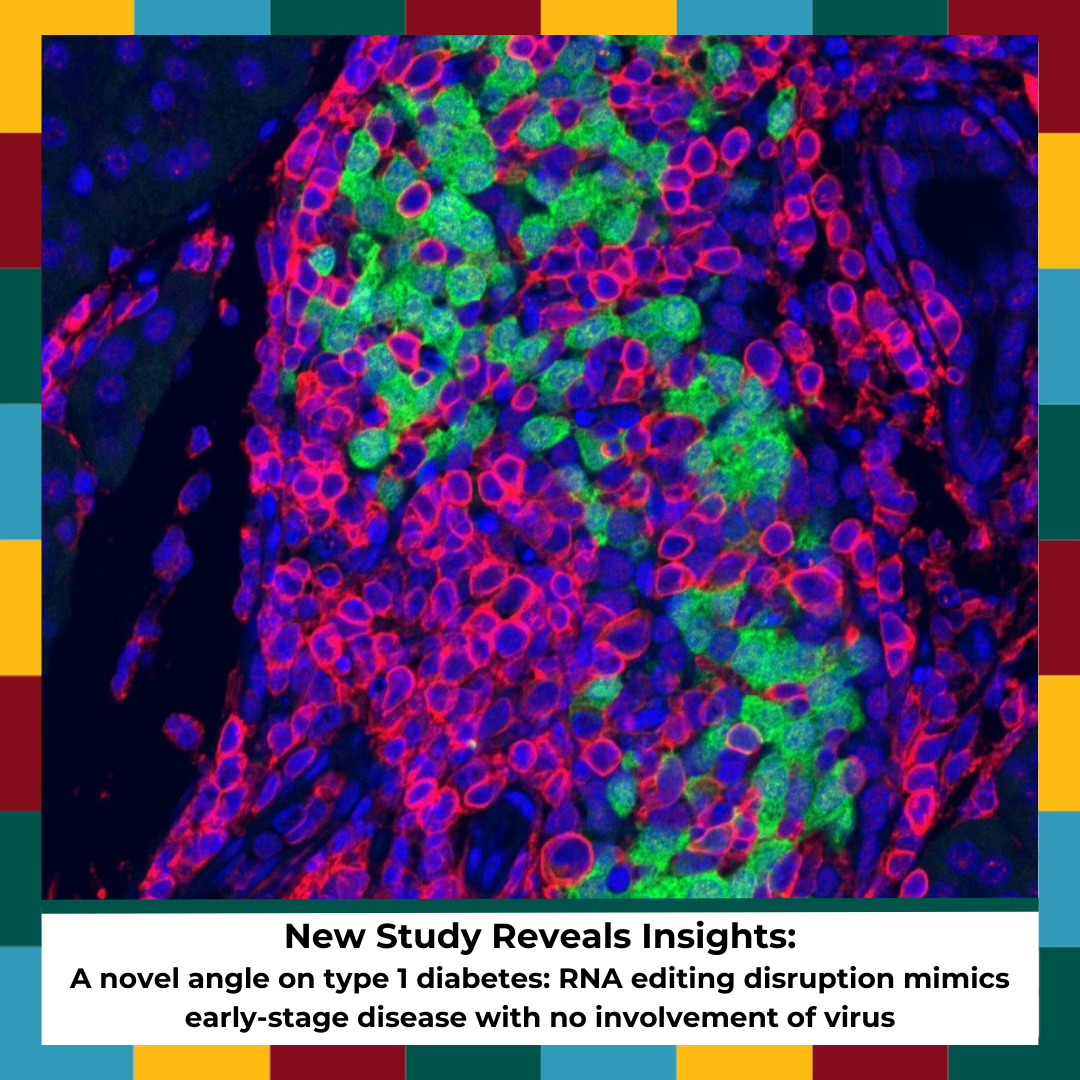Hebrew University study proposes a new model suggesting that disrupted RNA editing within pancreatic beta cells might initiate an inflammatory response akin to early-stage type 1 diabetes. This new perspective challenges the long-held belief of viral involvement, offering potential implications for treatments and cures.
Jerusalem, Israel— A recent study by researchers at the Hebrew University-Hadassah Medical School, Bar-Ilan University and Vanderbilt University has developed a new paradigm for early stages of type 1 diabetes (T1D), suggesting a new etiology that does not involve viral infection.
T1D is an autoimmune disease, affecting almost 10 million people worldwide, whereby the immune system attacks and destroys insulin-producing beta cells in the pancreas. In the absence of insulin, glucose concentration in blood increases, leading to a host of complications. Patients, typically diagnosed in childhood, require life-long treatment with insulin. A leading model for why T1D develops has been that the disease is initiated by viral infection, which on genetically-susceptible individuals is causing autoimmune attack on beta cells. This is supported by extensive information, for example the identification of an anti-viral response in early-stage disease. The implications of this view are vast; for example, it suggests the use of anti-viral therapy for preventing T1D. However, despite decades of search, a causal virus has not been found.
The research, led by Prof. Yuval Dor, Dr. Agnes Klochendler and MD/PhD students Ehud Knebel and Shani Peleg and published this week, introduces a new model for how T1D may develop, explaining the anti-viral response but with no need for viral infection.
The team studied a process called RNA editing, which acts to dismantle endogenous RNA molecules that fold on themselves, forming double-stranded RNA. Since double-stranded RNA is a hallmark of many viruses, such molecules can often be recognized, mistakenly, by the immune system as an indication of an invading virus, and trigger a detrimental immune response. They found that when RNA editing is defective in pancreatic beta cells, the body mounts a massive inflammatory attack, destroying beta cells and eventually leading to diabetes, with feature that strikingly resemble T1D. Moreover, they discovered that high levels of blood glucose are boosting the inflammatory attack, suggesting a vicious cycle whereby beta cell destruction leads to diabetes which further drives destructive inflammation. Strikingly, independent work has recently discovered that genetically-inherited defects in RNA editing predispose people to multiple auto-inflammatory conditions, including T1D, suggesting relevance to actual human T1D.
Prof. Yuval Dor stated, “Our research presents compelling evidence that disruption of RNA editing within beta cells can trigger an inflammatory response resembling early-stage type 1 diabetes. This offers a new view for how T1D may develop, with implications for prevention and treatment strategies”.
Dr. Agnes Klochendler added, “Identifying a link between natural double stranded RNA in beta cells, inflammation and diabetes opens a new perspective on T1D: a paradigm of “the enemy within”, not necessitating external viral infection as the triggering event for this disease.”
The Institute for Medical Research Israel-Canada (IMRIC) at the Hebrew University Faculty of Medicine is dedicated to pioneering biomedical research.
The study, titled “Disrupted RNA Editing in Beta Cells Mimics Early Stage Type 1 Diabetes,” has been published in Cell Metabolism and can be accessed at https://pubmed.ncbi.nlm.nih.gov/38128529/
Researchers:
Udi Ehud Knebel1,2, Shani Peleg1, Chunhua Dai3, Roni Cohen-Fultheim4,5, Sara
Jonsson1, Karin Poznyak1, Maya Israeli1, Liza Zamashanski1, Benjamin Glaser6,
Erez Y. Levanon4, Alvin C. Powers3,7,8, Agnes Klochendler1, Yuval Dor1
Institutions:
1) Department of Developmental Biology and Cancer Research, Institute for Medical
Research Israel-Canada, Faculty of Medicine, The Hebrew University of
Jerusalem
2) Department of Military Medicine and “Tzameret”, Faculty of Medicine, Hebrew
University of Jerusalem, Jerusalem, Israel, and Medical Corps, Israel Defense Forces
3) Division of Diabetes, Endocrinology and Metabolism, Department of Medicine, Vanderbilt University Medical Center, Nashville, Tennessee
4) The Mina and Everard Goodman Faculty of Life Sciences, Bar-Ilan University
5) Institute of Nanotechnology and Advanced Materials, Bar-Ilan University
6) Department of Endocrinology and Metabolism, Hadassah Medical Center and Faculty of Medicine, Hebrew University of Jerusalem
7) Department of Molecular Physiology and Biophysics, Vanderbilt University School of Medicine, Nashville, Tennessee
8) VA Tennessee Valley Healthcare System, Nashville, Tennessee
Picture
Title: Disrupted RNA Editing in Beta Cells: Pancreatic Inflammation Unveiled
Caption: Image of the pancreas of a mouse with disrupted RNA editing in beta cells, showing massive inflammation destroying an islet of Langerhans. Blue, DNA; Green, insulin-producing beta cells; red, immune cells.
Credit: Dor Lab

Disclaimer: In these challenging times of war and crisis, Hebrew University of Jerusalem is resolute in its dedication to advancing research and education. We stand in full support of the brave individuals on the frontlines, safeguarding our nation and the well-being of all Israelis, and extend our deepest gratitude and unwavering solidarity to our community and fellow citizens. Together, we shall prevail against the challenges that confront us, and our shared commitment to the well-being of all Israelis and the pursuit of knowledge remains resolute.
The Hebrew University of Jerusalem is Israel’s premier academic and research institution. With over 25,000 students from 90 countries, it is a hub for advancing scientific knowledge and holds a significant role in Israel’s civilian scientific research output, accounting for nearly 40% of it and has registered over 11,000 patents. The university’s faculty and alumni have earned eight Nobel Prizes and a Fields Medal, underscoring their contributions to ground-breaking discoveries. In the global arena, the Hebrew University ranks 86th according to the Shanghai Ranking. To learn more about the university’s academic programs, research initiatives, and achievements, visit the official website at http://new.huji.ac.il/en

